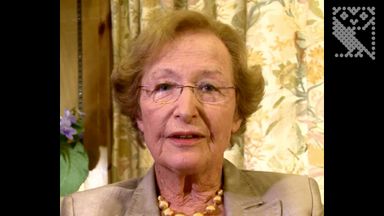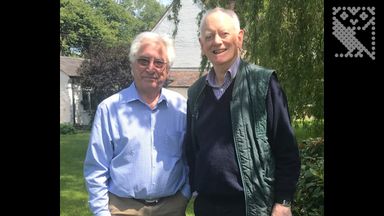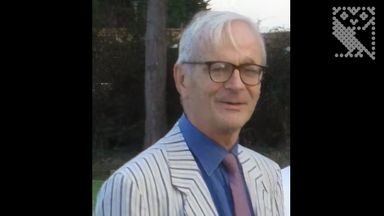The BBC Computer Literacy Project Interviews
Sheila Innes, former BBC Controller Educational Broadcasting
Clips from this programme
1) Why did the BBC begin to think about the importance of the 'micro revolution'? Manpower Services Commission (Geoffrey Holland) funding allowed preliminary series including The Silicon Factor. Job losses and our competitiveness needed to be considered. (Sheila Innes)
Duration: 00:532) What was the Fundamental philosophy behind the project and does it have echoes today? A powerful technology that must not dominate us, still with us with Artificial Intelligence (AI), today. (Sheila Innes)
Duration: 00:203) Was there a moment which maybe triggered the early thinking? The Project's start over a drink in the BBC Club with David Allen 'with twinkle'. (Sheila Innes)
Duration: 00:404) How did the idea of a BBC Microcomputer come about? Further Education publications and support services, but our own microcomputer, too? Specifications and highest quality at the best cost. (Sheila Innes)
Duration: 00:595) Was there a model for the Project of this complexity? A very big project after the Adult Literacy Project in 1973. (Sheila Innes)
Duration: 00:216) What were government and other outside influences? And who masterminded the wider project? Education Officers, particularly Robert (Bob) Salkeld, attended a meeting at Downing Street called by Margaret Thatcher. Kenneth Baker at the Department of Trade and Industry (DTI) was impressed by the project for which the overall architect and supremo was John Radcliffe. (Sheila Innes)
Duration: 01:207) Fluffy toys and flack. Having a BBC Microcomputer was very controversial. How did BBC Management and the BBC governors respond to the idea? Educational Broadcasting was used to flack but had huge support from BBC Engineering (David Kitson in particular). BBC Enterprises was new to selling something such as hardware. Bill Cotton (Director of Television) was won over, Aubrey Singer liked technology, BBC board of governors were completely won over to the BBC Microcomputer 'on-air'. (Sheila Innes)
Duration: 02:108) Tell us about the support of the National Extension College. Working with Richard Freeman, 30 Hour Basic course. (Sheila Innes)
Duration: 00:169) What did audience research reveal? Right across the social spectrum the more technical the programmes, the more they were appreciated. Education Officers went out into the field with the project. (Sheila Innes)
Duration: 00:2910) After two years of the project how did Micro Live come about? With a successful project, a whole Sunday morning was put aside for a feedback programme - Micro Live. (Sheila Innes)
Duration: 00:2011) Were you surprised about the success of the BBC Micro? A first estimate of a sale of 10,000 machines turned out to be 2 million, making money for the BBC that went back into programmes. (Sheila Innes)
Duration: 00:2612) How did it all end after nearly a decade? Micro Live moved on, including Mobile phones, but channel controllers wanted to move on. The Trojan Mouse summed it all up. (Sheila Innes)
Duration: 00:3513) Was there something which summed it all up at the time? The final accolade: A letter from Margaret Thatcher saying 'what a splendid enterprise it had all been'. (Sheila Innes)
Duration: 00:2414) Timing is everything. Were you just lucky? 'We had our moment' (Professor Asa Briggs). (Sheila Innes)
Duration: 00:19The BBC Computer Literacy Project Interviews
Sheila Innes, former BBC Controller Educational Broadcasting
First broadcast: 1st May 2018
Duration 09:45
Sheila Innes Head of Department and later Controller of Educational Broadcasting remembers origins and highlights of the project, recorded May 2018
Now playing
John Radcliffe (Executive producer)
First broadcast: 14th May 2018
Duration 57:47
John Radcliffe (Executive producer and later Head of Open University Productions) and David Allen (project editor) In conversation in May 2018, remembering the Computer Literacy Project 40 years on.
David Kitson (Head of Transmission Group within BBC Designs Department)
First broadcast: 20th May 2018
Duration 19:40
David Kitson (Head of Transmission Group within BBC Designs Department) became responsible for monitoring the progress of the BBC micro computer in behalf of BBC Engineering.
















